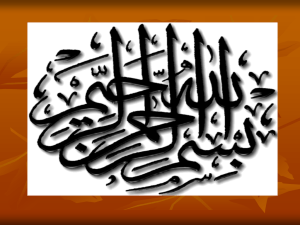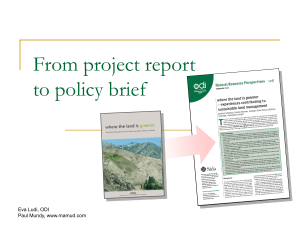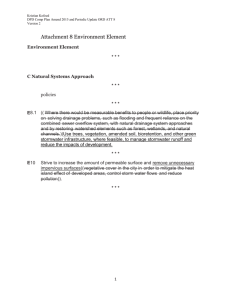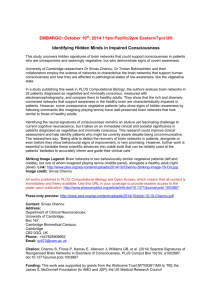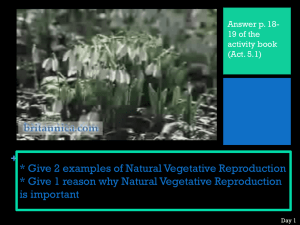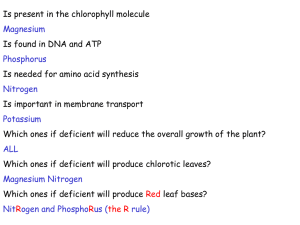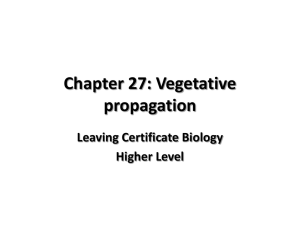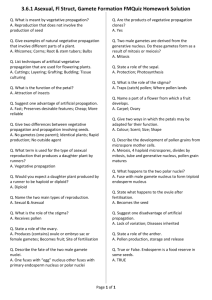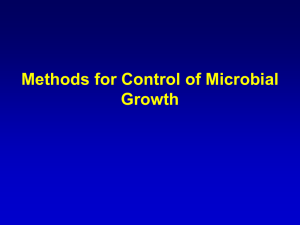SUPPORTING INFORMATION Text S1 Morphological characteristics
advertisement
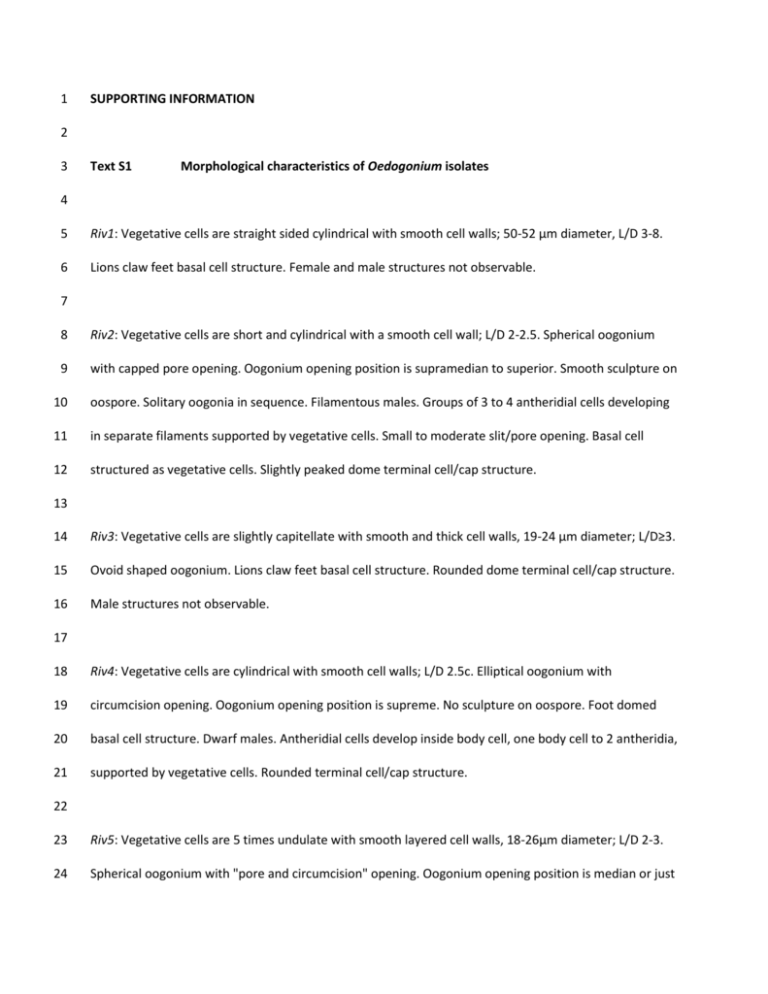
1 SUPPORTING INFORMATION 2 3 Text S1 Morphological characteristics of Oedogonium isolates 4 5 Riv1: Vegetative cells are straight sided cylindrical with smooth cell walls; 50-52 µm diameter, L/D 3-8. 6 Lions claw feet basal cell structure. Female and male structures not observable. 7 8 Riv2: Vegetative cells are short and cylindrical with a smooth cell wall; L/D 2-2.5. Spherical oogonium 9 with capped pore opening. Oogonium opening position is supramedian to superior. Smooth sculpture on 10 oospore. Solitary oogonia in sequence. Filamentous males. Groups of 3 to 4 antheridial cells developing 11 in separate filaments supported by vegetative cells. Small to moderate slit/pore opening. Basal cell 12 structured as vegetative cells. Slightly peaked dome terminal cell/cap structure. 13 14 Riv3: Vegetative cells are slightly capitellate with smooth and thick cell walls, 19-24 µm diameter; L/D≥3. 15 Ovoid shaped oogonium. Lions claw feet basal cell structure. Rounded dome terminal cell/cap structure. 16 Male structures not observable. 17 18 Riv4: Vegetative cells are cylindrical with smooth cell walls; L/D 2.5c. Elliptical oogonium with 19 circumcision opening. Oogonium opening position is supreme. No sculpture on oospore. Foot domed 20 basal cell structure. Dwarf males. Antheridial cells develop inside body cell, one body cell to 2 antheridia, 21 supported by vegetative cells. Rounded terminal cell/cap structure. 22 23 Riv5: Vegetative cells are 5 times undulate with smooth layered cell walls, 18-26µm diameter; L/D 2-3. 24 Spherical oogonium with "pore and circumcision" opening. Oogonium opening position is median or just 25 below. Laminated sculpture on oospore with a smooth layered outer wall. Single or paired oogonia in 26 sequence. Dwarf males. Two antheridial cells developing in the body cell of the dwarf male supported by 27 vegetative cells. Wide or torn slit/pore opening. Basal cell structure with claws. Domed or layered 28 terminal cell/cap structure. 29 30 Tar1: Vegetative cells are cylindrical with smooth cell walls; 22-24µm diameter L/D 1.5-4. Globose 31 shaped oogonium with length of 34µm and diameter of 36µm. Oogonium opening position is superior, 32 opening shape is obscure but possibly a pore. Basal part of oogonium is flat. Appears to be single 33 number of oogonia in sequence. Vegetative supporting cells. Wide slit/pore opening. Male structures 34 not observable. 35 36 Tar2: Vegetative cells are cylindrical with slight expansion at the top and with smooth cell walls; c.12µm 37 diameter. Pyriform shaped oogonium, with a circumcision shaped opening. Basal part of oogonium is 38 flat. Single oogonia in sequence. Vegetative supporting cells. Domed terminal cell/cap structure. Male 39 structures not observed. 40 41 Tar3: Vegetative cells are cylindrical to very slightly conical with smooth cell wall, 10-12µm diameter. 42 Barrel shaped oogonium. Basal part of oogonium is flat. Appears to be single number of oogonia in 43 sequence. Male structures not observable. 44 45 Tar4: Vegetative cells are cylindrical with smooth cell walls; 20-28µm diameter, L/D 1.75-3. Barrel 46 shaped oogonium with pore shaped opening. Oogonium opening position is superior. Basal part of 47 oogonium is flat. Appears to be single number of oogonia in sequence. Vegetative supporting cells. 48 Wide slit/pore opening. Male structures not observable. 49 50 Tsv1: Thick walled cylindrical vegetative cells, 26-29 µm diameter, L/D 2-2.5. Slight ovoid "resting cells". 51 Smooth opening on oogonium. Rounded dome terminal cell/cap structure. 52 53 Tsv2: Often contains regular runs of similar sized cylindrical cells, L/D 1-2. Vegetative cells are straight 54 sided cylinders with smooth cell walls; diameter 26-31 µm, L/D 1.5-2. 55 56
